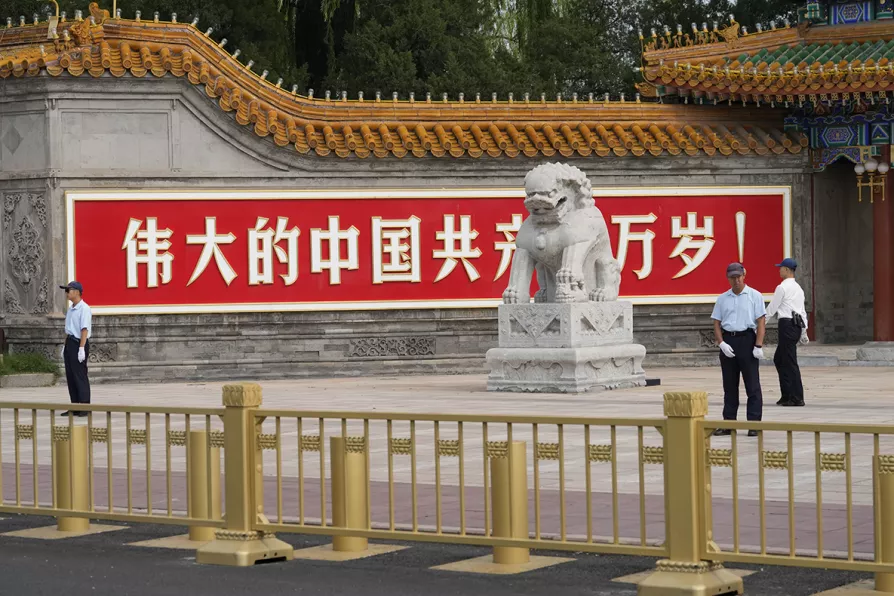Communist Party of China begins four day economic strategy meeting

 Chinese security personnel stands guard near a sign which reads "Long Live the Great Chinese Communist Party" outside the Zhongnanhai leadership compound as the Communist Party's Central Committee holds its third plenum in Beijing, China, July 15, 2024
Chinese security personnel stands guard near a sign which reads "Long Live the Great Chinese Communist Party" outside the Zhongnanhai leadership compound as the Communist Party's Central Committee holds its third plenum in Beijing, China, July 15, 2024
THE Communist Party of China’s leadership began a four-day meeting today that is expected to lay out a strategy for self-sufficient economic growth.
The third plenary session of the 20th central committee in Beijing is expected to focus on improving the country’s financial system’s and technological innovation to support China’s continuing drive towards modernisation.
It follows China posting a healthy 5 per cent economic growth rate for the first half of 2024.
Similar stories

Western media dismisses the National People’s Congress while ignoring its extensive consultation processes, massive public participation mechanisms, and a tiered structure involving millions of deputies, explains JENNY CLEGG

From defeating illiteracy to tackling student stress, China’s system transforms lives while putting people before profit — British educators should consider what we could learn from the world’s largest school system, writes LOGAN WILLIAMS












